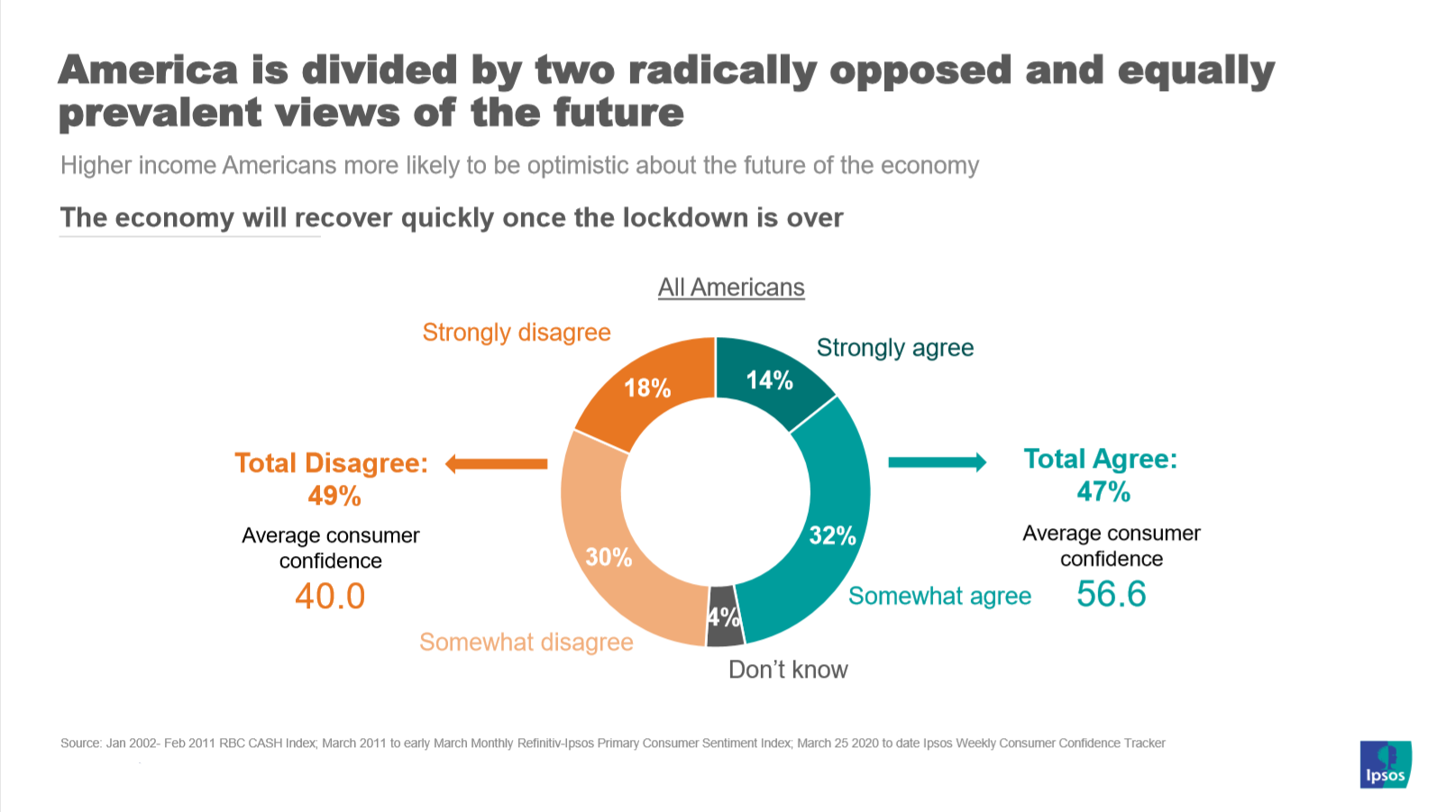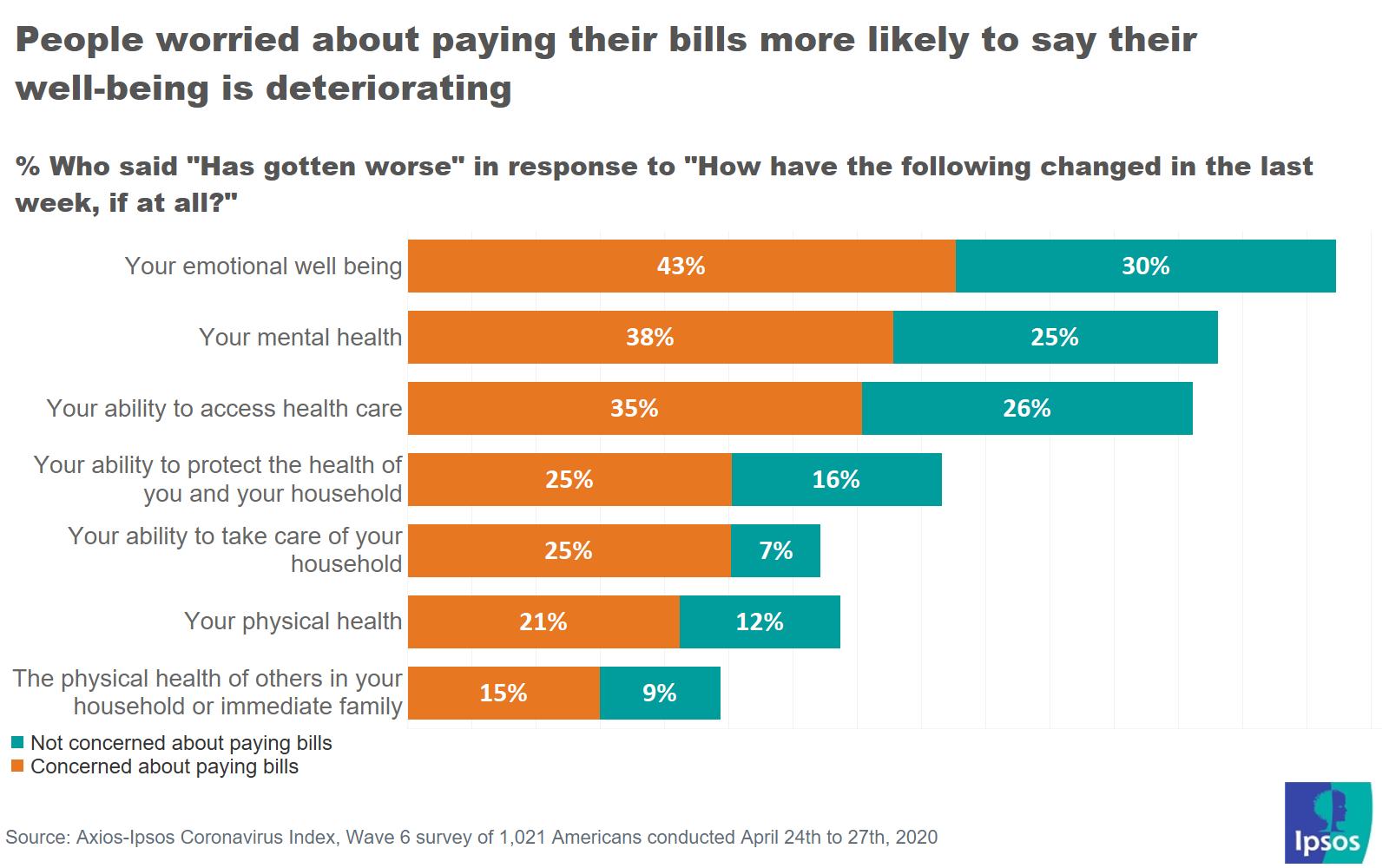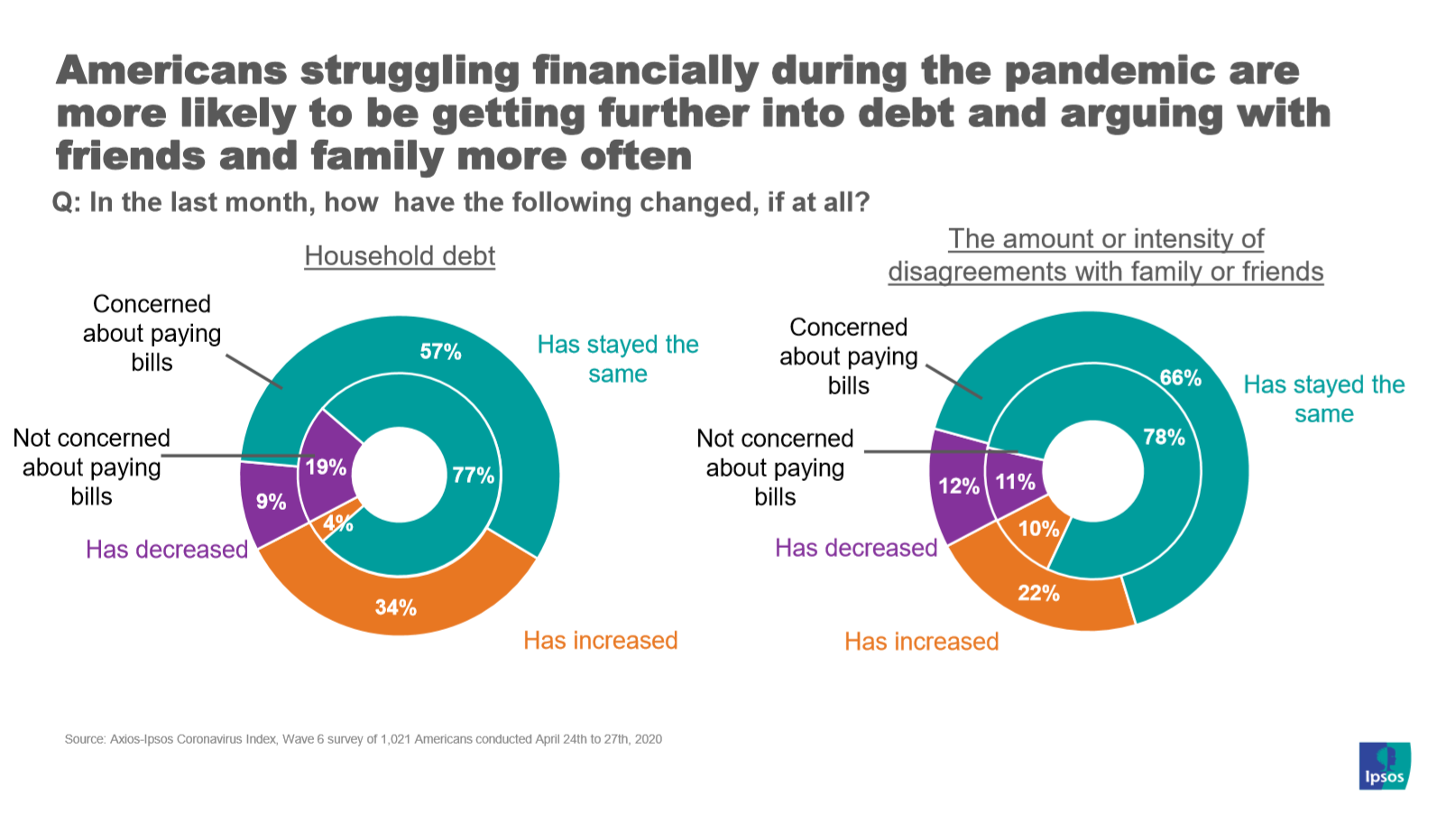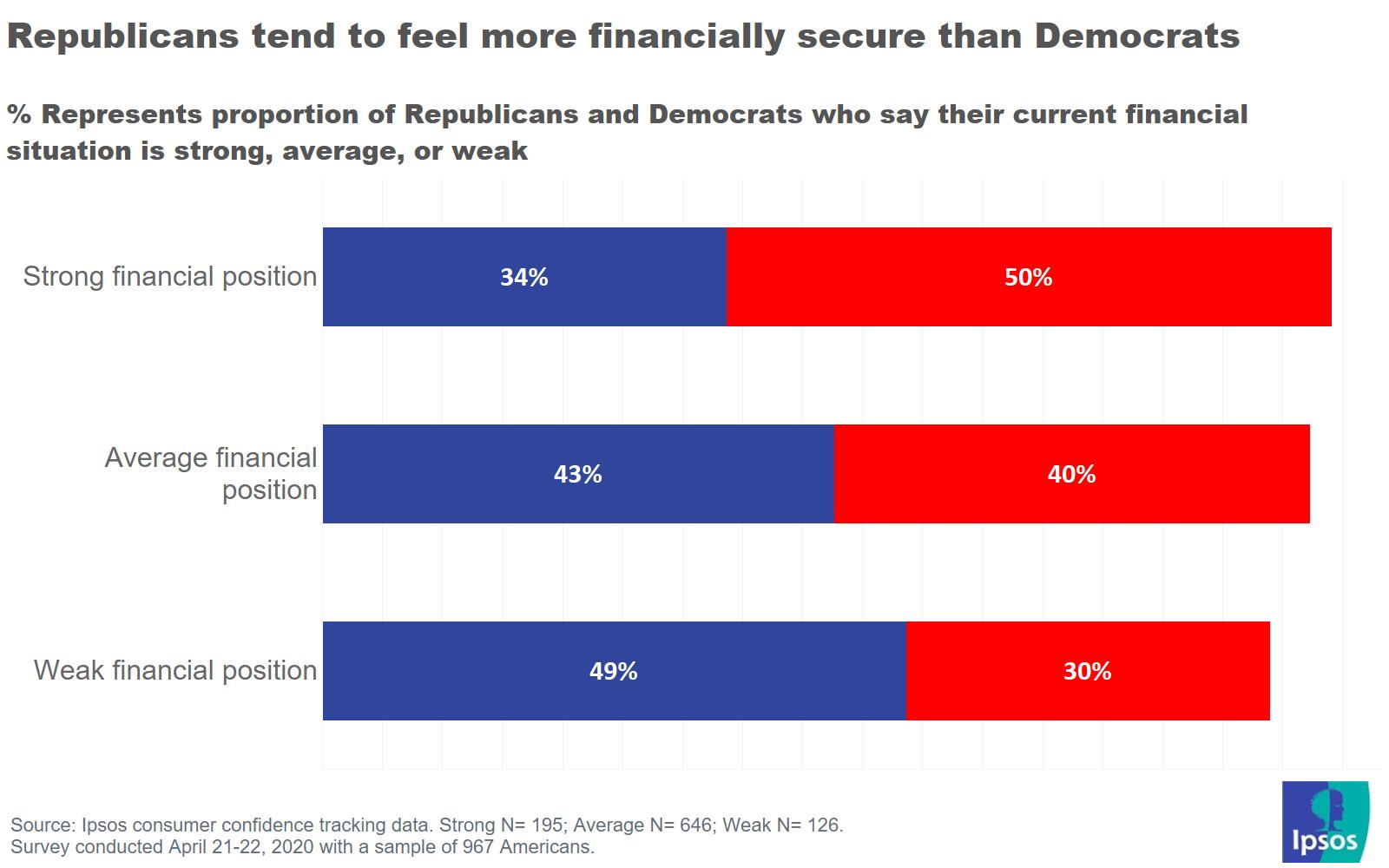Coronavirus’ Impact Unevenly Felt Across America
What you need to know:
- The economic fallout of the pandemic has been uneven, impacting Americans already in a tenuous financial situation more heavily.
- That financial insecurity is bleeding into other areas of life, causing emotional and physical distress.
- Views of how quickly the economy will recover are radically divided: 47% of Americans believe that the economy will recover quickly once restrictions are lifted, while another 49% do not.
Deep Dive:
As the pandemic temporarily suspends everyday life, millions of Americans have lost their jobs and are struggling to pay the bills. Social isolation is even more widespread: 92% of Americans report taking steps to socially distance by staying home, avoiding social gatherings, and ending visits to friends and family.
Though the coronavirus has touched everyone, some are feeling the impact more acutely. Ipsos data shows that those Americans who are struggling the most financially during the pandemic also report the most emotional and physical suffering, as well as higher levels of concern about being able to still access healthcare.
Rather than uniting America around their common plight, the coronavirus is dividing the nation in two. On the one hand, there are now those who will likely weather the storm with their jobs and lives essentially intact. On the other, millions have suddenly found themselves jobless or in a position of risking their health as they continue to go out to work to pay the bills, with no end in sight.
Coronavirus exacerbates pre-existing financial stress
Economic worries are not evenly shared across the United States, analysis of Ipsos data underscores. Americans who were in a more precarious financial situation going into the pandemic are also the most concerned about their financial situation now. Those struggling the most tend to be renters, younger, single, and lower income, according to Ipsos’ Consumer Sentiment Index.
More than 30 million Americans have filed for unemployment since mid-March, a staggering number but one that is still likely an undercount. The negative effects of a job loss during a pandemic are obvious, but in a nation where access to healthcare is often tied to employment, they are particularly dire.
Unsurprisingly, many Americans became significantly less optimistic about their economic prospects in the wake of the coronavirus. Consumer confidence declined more than 15 points since the lockdown began, dropping from 60.1 in early March to 45.1 on April 16.
Over the past two weeks the numbers have rebounded a few points, underscoring that a significant number of Americans believe that economic activity will pick up quickly once the virus is contained. Still, this view is not universally shared. A deeper dive into Ipsos’ consumer confidence numbers shows a radical split: 47% think the economy will recover quickly once the virus is contained, and 49% believe we are in for a slow recovery.

These two groups have even more disparate views of what the future will hold. Those who are confident of a quick return to normal are about as optimistic about the future as the nation was just before the 2016 election, a moment when overall consumer sentiment was rising and the economy was in the midst of a recovery after the prolonged downturn of the recession. Those who disagree with this rosy view of our post-coronavirus future are 16 points less confident.
Americans are further divided by demographic group on this question, with Americans making less than $50,000 more likely to say that the economic recovery will be slow than their wealthier counterparts. Republicans are much more confident about a quick recovery than Democrats, at 63% and 31% respectively.
Americans suffering the most financially are also more likely to be struggling emotionally and physically
Financial insecurity is bleeding over into other areas of life. Americans struggling financially during the pandemic are more likely to report stress in their emotional and family life compared to Americans who are less worried about money. They are also more concerned about more weeks and months to come of self-quarantining, what this means for their job security, and the possibility of getting sick than their less financially strapped counterparts.
They tend to be more apprehensive about the government’s response to the outbreak, unsurprising given that millions of Americans are now turning to federal aid to stay afloat. Their future security depends on how well the American government handles the public health crisis and economic recovery.
Across the board, Americans who are worried about paying their bills are more likely to report that their emotional and physical well-being is deteriorating, analysis of Axios-Ipsos Coronavirus Index data shows. They are more likely to say that their ability to access healthcare has gotten worse and are concerned about how well they will be able to take care of their families.

Financial and personal problems are fraying nerves and depleting finances. As a group, Americans worried about paying their bills are more likely to say that their household debt has increased and they are fighting with friends and family more often than Americans with less financial stress.

Financial stress across partisan lines
As the nation debates lifting restrictions to get the economy going again, Americans are divided on this issue along partisan lines. Republicans are more likely than Democrats to say that moving too slowly on loosening restrictions and causing damage to the economy is the greatest danger to the country, while Democrats are more likely to say that ending restrictions too soon and causing more deaths is the greatest threat.
That calculus of opening up the economy at the expense of other peoples’ lives is not necessarily driven by financial hardship. Most Republicans and Democrats feel that they are in an average financial position, according the Ipsos Consumer Sentiment Index. In fact, at the extreme ends of the spectrum, Republicans appear to be better off. Republicans are more likely than Democrats to say that they are in a “strong” financial situation, while Democrats are more likely than Republicans to say that they are in a “weak” position financially.

With the end of the lockdown still under debate – and uncertainty around how fast economic activity will pick up again even when restrictions lift – financial pressures are unlikely to lessen anytime soon. For the time being, that divergence in Americans’ expectations for the future and levels of stress between the financially secure and insecure is the new reality.


